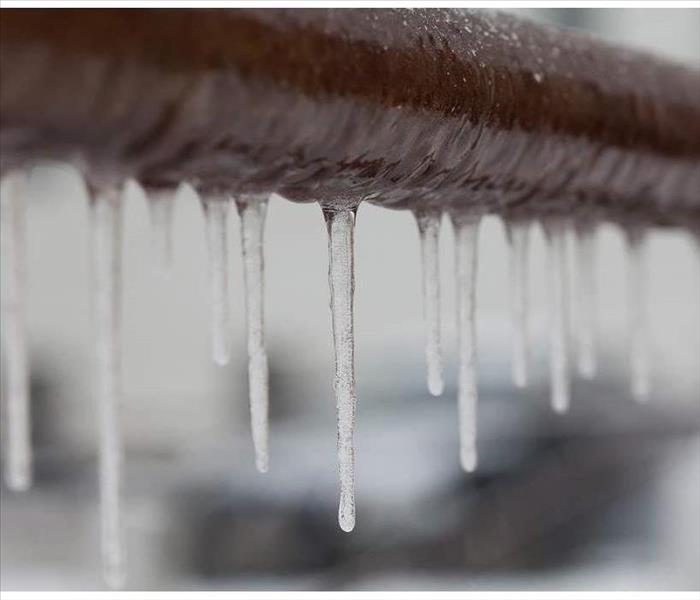Frozen Pipes: What To Do and How To Prevent Them
1/22/2019 (Permalink)
 Now is the time to learn more about how to avoid frozen pipes and water damage that can occur if those pipes expand and burst.
Now is the time to learn more about how to avoid frozen pipes and water damage that can occur if those pipes expand and burst.
Sub-zero temperatures are hitting the Chicagoland area hard and early this year. Now is the time to learn more about how to avoid frozen pipes and water damage that can occur if those pipes expand and burst. While a common occurrence, frozen pipes are highly preventable.
SERVPRO offers the following tips for preventing frozen pipes and mitigating potential damage that they can cause.
To prevent frozen pipes and avoid any potential damage:
- Insulate all exposed pipes in your property. Pay close attention to where pipes may be unheated, such as the basement, attic, garage, crawl space, and under cabinets in the kitchen and bathroom.
- Maintain a consistent temperature through your house day and night.
- Close any valves located inside that supply water outdoors and open outside valves to properly drain any excess water remaining in the pipes.
- Remove, drain, and store hoses used outdoors.
- In especially freezing temperatures, let your faucet trickle; running water is less likely to freeze.
- If you will be leaving your home unoccupied for an extended period of time, leave the heat on and set to a temperature no lower than 55° F.
Thawing Out a Frozen Pipe:
- If you turn on a faucet and only a few drips come out, you may have a frozen pipe. Typically, frozen pipes are found along exterior walls or where your water service enters your home through the foundation.
- Leave the faucet on while treating any frozen pipes, as flowing water will help melt the ice.
- Apply heat to the frozen section of the pipe by using an electric heating pad, an electric hair dryer, or wrapping pipes with towels soaked in hot water. Do not use a blowtorch, kerosene or propane heater, or other open flame device.
- Check all other faucets in your home to see if you have additional frozen pipes. If one pipe freezes, others may freeze too.
In the unfortunate event you experience any sort of water damage loss, caused by frozen pipes or otherwise, call SERVPRO of Elk Grove/E. Schaumburg/Itasca/Roselle and SERVPRO of Palatine/Rolling Meadows We are available 24/7 to address your needs. The longer you wait to call, the greater the chance of mold growth and unrecoverable property. SERVPRO professionals have the training and expertise to prevent or mitigate the devastating effects that water damage can have.

 24/7 Emergency Service
24/7 Emergency Service